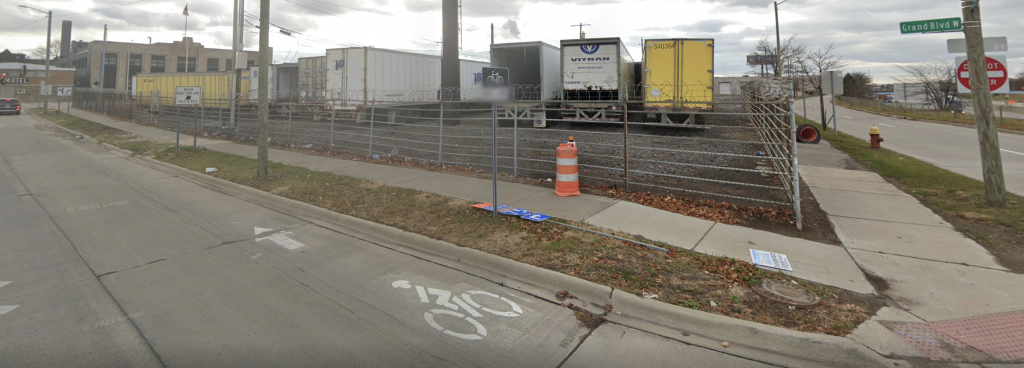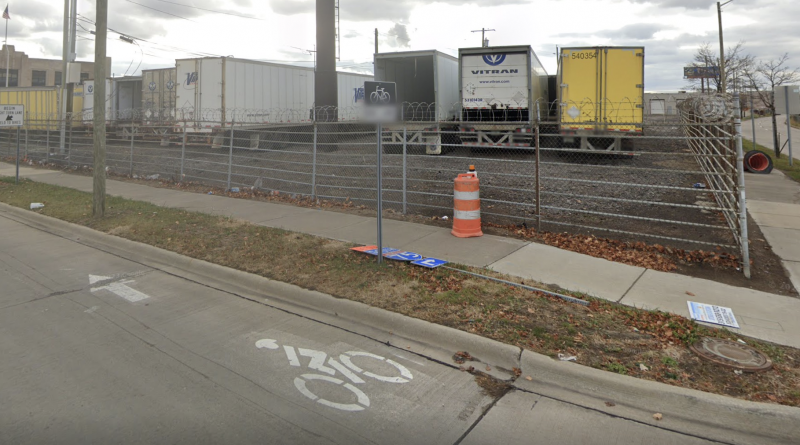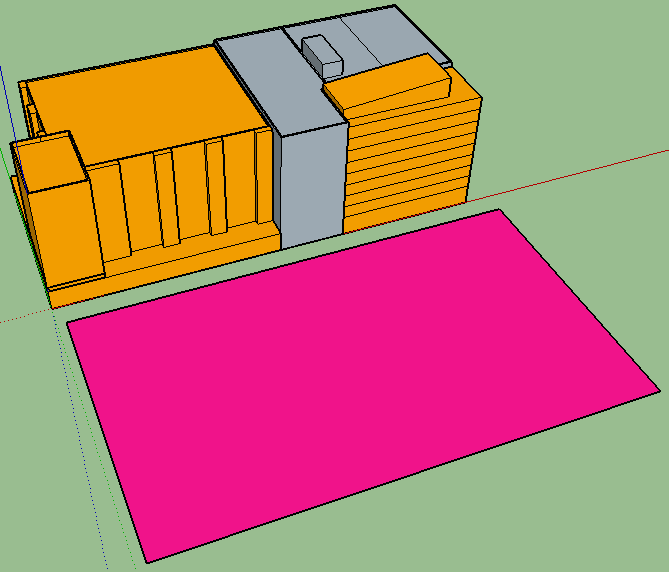City of Detroit: “You’re good– if your last name is Moroun or Ilitch.”
An update on a minor saga involving the age-old tale of woe for anyone who isn’t a billionaire in Detroit! For months, I’ve been trying to figure out what is going on with this lot at the northwestern corner of West Grand Boulevard and West Fort Street in Southwest Detroit. It’s a lot that I often walk by with the dogs, since we live just a few blocks up. The lot is covered in trash and disused trailers, both of which are prohibited under various elements of the municipal code. It recalls the one time I wrote about how the Morouns tore down a warehouse to build more truck parking and when I asked why there was no building permit on file, one mysteriously materialized in BSEED’s records after my request.
The Morouns Tore Down A Warehouse For More Truck Parking. Really. [EDITED]
Handbuilt v. Regulatory FOIAbles
Months ago, I submitted a FOIA request to the city after numerous requests for complaint inspections to BSEED were denied for reasons unbeknownst to me. A pro tip for investigative folks is that one of the best cop-outs an entity, public or private, will often use, is that they don’t have the record in question. This is why paper trails are valuable (but exhausting to manage). The city did eventually send out a police officer and a building inspector and they found nothing wrong with the site. This is, of course, incorrect, as the city is in violation of a number of sections of municipal code– not the least of which are Sections 8-15-110, which governs vehicle storage, or Sec. 50-12-355, which governs truck parking. It gets worse when you look back at the list of tickets I investigated and found how few had actually ever been assessed by the Department of Administrative Hearings.
In other words, the city just threw out those violation tickets. Taxpayers were responsible then not only for subsidizing these companies through arguably corrupt land-swap deals negotiated behind closed doors, for the cost of attempting to enforce code compliance through BSEED, and for the city’s later refusal to actually enforce those tickets.
Why does it matter? Because we have a city that is designed for the benefit of a few billionaires, who continue to extract not only wealth from the city, but also enjoy special treatment from the regulatory regime. And I, for one, am not okay with that.
Development Potential
This area was examined in Detroit Park City, if you remember that series, in which I looked at similar lots and tried to assess their development potential. In this case, even though it’s next to a highway, it seems like prime redevelopment territory for its proximity to both downtown and to the rest of Southwest Detroit. There is no reason why low-intensivity, filthy land uses have to dominate actual neighborhoods. To be clear, industry totally has a place in cities! It’s just gotta be designed and built with attention to attenuating things like air pollution, noise pollution, or truck traffic. We can have industrial sites in neighborhoods, we just can’t have terminals for parking busted ass old trucks on trash-strewn lots.
But the city’s cool with it, and they specifically cite that it’s not a residential area, so who cares? In an “inter-office memorandum” dated July 20th, months after the FOIA request was made, Sgt. Manuel Gutierrez opined that “There are no residences anywhere near the enclosed lot.”
In fact, there are dozens of residences within 400 feet– the entire length of the freeway right-of-way and access roads. Dozens of apartments abut either the freeway right-of-way (frontage of Lafayette), or West Grand Boulevard. Typically, most regulatory regimes use treatments like “500 feet” as a standard distance– just under a tenth of a mile- to determine whether something is in the immediate impact area of a project. Others use a more generous 1000 feet (under a quarter of a mile).
But I guess Sgt. Gutierrez doesn’t really care, because he doesn’t live there? I am not really sure, but certainly, we’re all getting a little bit fed up.




